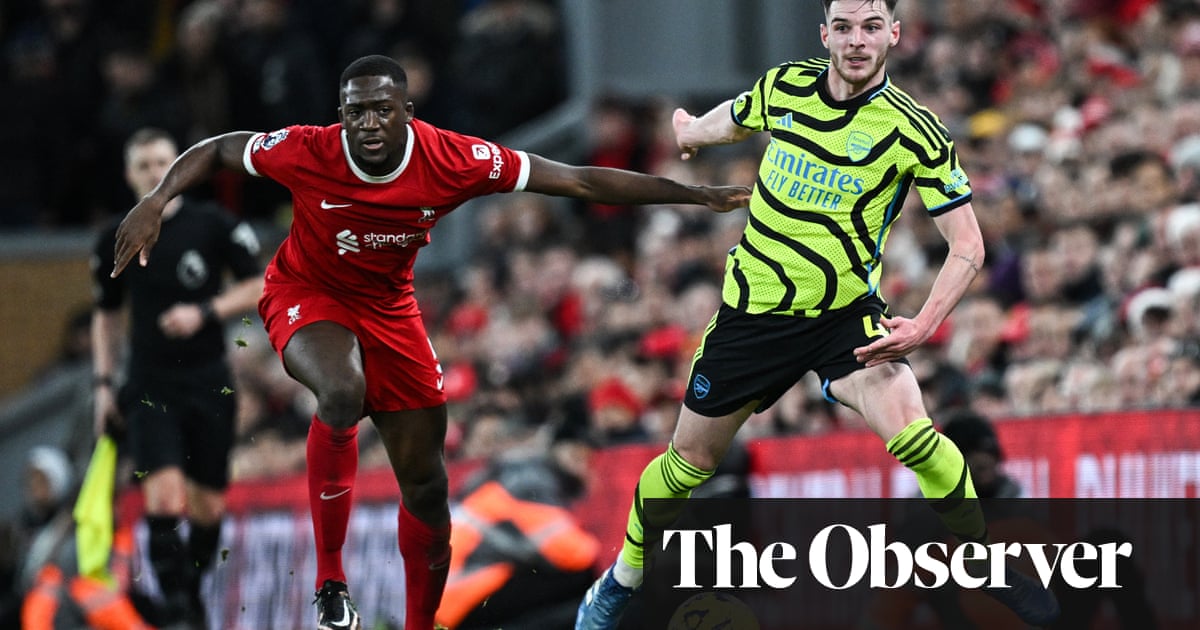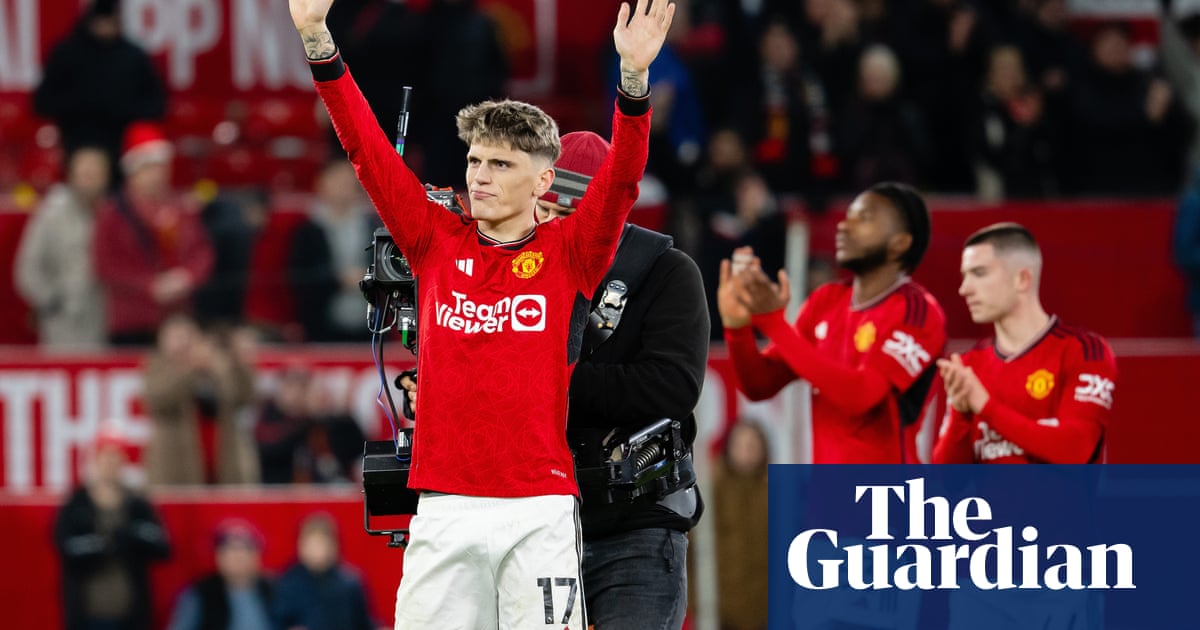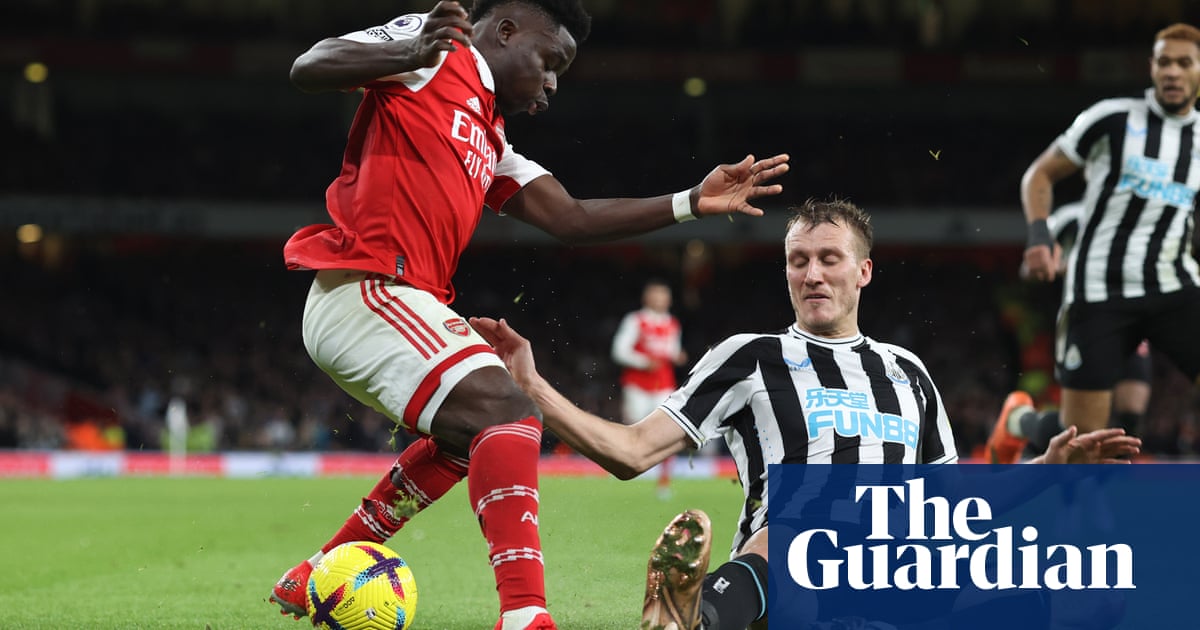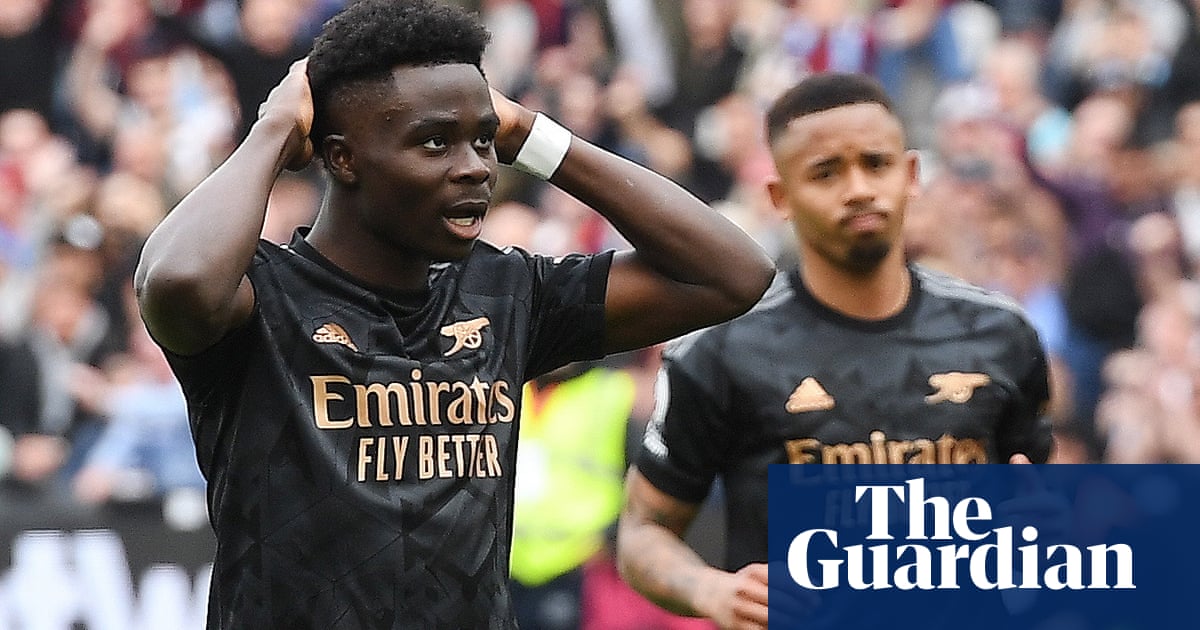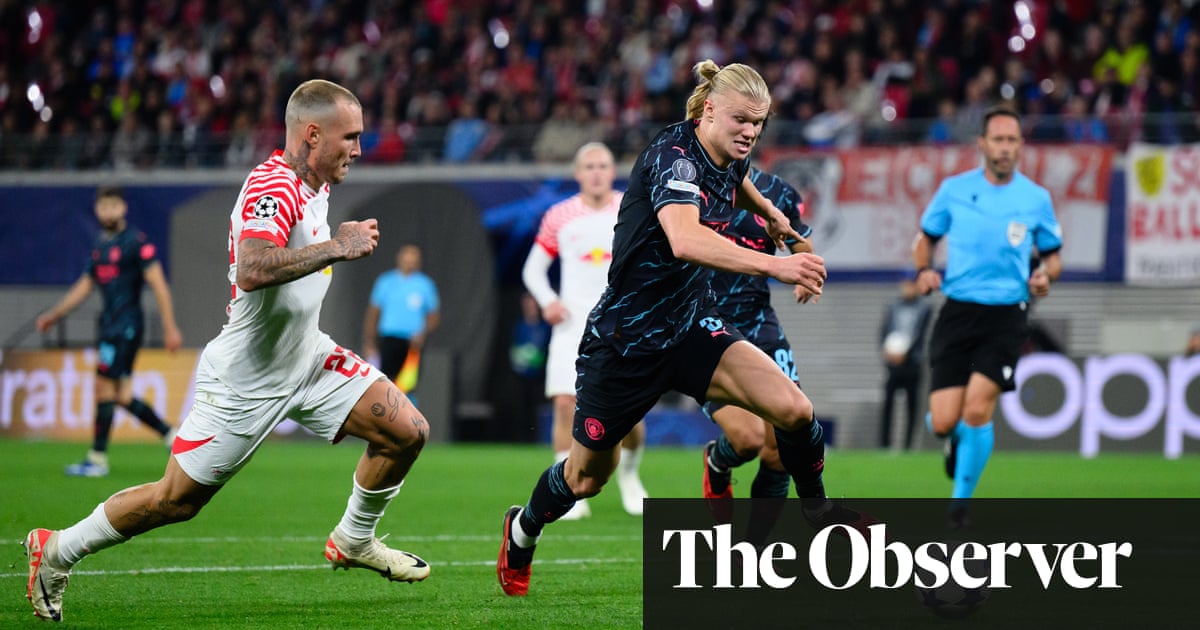
As the players of Manchester City and RB Leipzig stood in the tunnel at the Red Bull Arena before kick-off on Wednesday night, the usual flip-chart of clenched jaws and event-horizon stares, Erling Haaland could be seen lolling out last in line from the City dressing room.
Haaland spotted the equally blond and chiselled Xaver Schlager, a teammate from RB Salzburg days, crept up behind him and enveloped him in a kind of laughing Nordic bro-hug, beaming with such tender, tactile bonhomie, you half-expected him to pick the Austrian up by the scruff, lick his ears, pick some briars out of his fur and take him back to his ice cave.
What’s eating Erling? Nothing much on the face of it. Haaland played 90 minutes as City won 3-1 in Leipzig. He has eight goals in the Premier League this season and 60 in 64 games overall. He’s the razor edge of the most dominant club football entity since Messi-Xavi-Pep era Barcelona, a team that don’t just win matches but suck the guts, the plasma, the spinal fluid out of their opponents. It isn’t hard to see why he might be feeling relaxed with life.
Although, as ever with the Guardiola school of team-building, the football of clean lines and micro details, there is always something to unravel. There is a sense Sunday’s trip to Arsenal, a fixture that was a defining event in Haaland’s debut City season, might just be coming at the right moment.
The two league wins against Arsenal were City’s most complete domestic performances last season, the 3-1 at the Emirates in February the moment it become clear that this Haaland-centred team really were a nudge further on from the more decorative versions; that the butterfly-brilliance had been sharpened to a cold, hard edge.
It is a familiar pattern with Guardiola teams, the constant refinements of shape and texture. In many ways the manager’s perfectionism through the period of dominance is the element that has kept this thing interesting for the neutral. That annihilating sky-blue mist is never quite the same as the last annihilating sky-blue mist. Even this season there is a sense of something still waiting to settle.
Guardiola was grouchy in midweek. Before the game he spoke pointedly about the lack of time to coach. Asked about the unusual buildup, back-to-back defeats in City’s previous two games, he replied: “What’s not usual is winning the treble,” which is both true and amusingly terse.
Guardiola has also been juggling absences and grooving new parts. That high-spec style requires maintenance and complex diagnostics, the footballing equivalent of a hyper-engineered German car. It is here the basic paradox of Haaland as a Guardiola player lies. Last season was the most profound of rejigs, the team where the ball is everything reinventing themselves around a player for whom the ball is of little interest in itself; the masters of pass and move rejigged to suit a player who doesn’t really pass and doesn’t often move; from false 9s to the most extreme apex 9 imaginable.
It worked, brilliantly. Midfield and defence, the role of the full-backs, the way the team attacked, were all reconfigured on the hoof. The five-week World Cup coaching break in mid-season helped. But the balance has changed again this season. City have shifted to a fluid 4-2-3-1, with Julián Álvarez performing as a complete attacking orchestra in the No 10 role.
Haaland has always been the most minimalist of elite centre-forwards. In the current shape this has become even more pared back. Haaland is taking fewer touches this season and making fewer passes, but having as many or even more shots. The ratio is extreme at times. Against Red Star Belgrade he had 16 touches, six of those shots. Against West Ham it was 22 touches and nine shots, Fulham 17 touches and four shots, including a hat-trick and an assist.
Has any footballer ever produced so much hard end product from so little preamble? This is a man shaving the garlic so thin it liquifies in the pan. Less is more. But is less ever just less? The goals have continued to flow. But there is another pattern. Only a fool would question Haaland’s output. So, here goes.
That last Arsenal game in April is significant in other ways. It’s also the last time Haaland scored against a really elite, Champions League-level opponent. In six months since he has goals against Everton, Fulham, West Ham, Burnley, Sheffield United, Fulham again, West Ham again and Nottingham Forest. In the same period he hasn’t scored against Real Madrid, Real Madrid again, Chelsea, Brighton, Manchester United, Internazionale, Arsenal and Newcastle.
This is of course a very basic, and indeed misleading, metric. Everyone scores fewer goals against better teams: this is why they’re better teams. And these are just goals. Haaland played well against Real Madrid, played well in the Champions League final. This is not a talent issue or a nerve issue. Haaland is built to devour the big moments and big stages.
City are missing key players and have lost some others. Kevin De Bruyne’s passing range is a complete attacking blueprint in its own right. The significance of that paring back this season is that Haaland was beginning to change his game in other ways around the time of that last trip to the Emirates, to have more influence in the moments between the moments, to become more obviously Guardiola-ish.
Between March and April he racked up five assists in 11 matches (as well as 18 goals). In the first Arsenal league game he had 35 touches. In the 4-1 at the Etihad he had 36 touches with two assists, three key passes, two dribbles, five shots on target, a performance in the centre of a tight 4-3-3 forward line, with De Bruyne just behind, that was described in these pages as “complete”.
Haaland in Leipzig was once again a specialist cutting edge. He spent a lot of time walking ahead of the trio behind him. His finishing was a bit cranky. With 91 minutes gone and City 2-1 up he sprinted 60 yards in the hope Jérémy Doku, clean through on the counterattack, would pass sideways rather than just scoring the third.
Haaland knows his numbers. He seemed desperate to score in the Champions League after five starts without a goal. But that burst was also a reminder of how exhilaratingly incisive he is running at goal from deep, and how rarely he gets the chance to do this in a team that dominate possession, condensing an entire opposition team back towards its own goal.
There are times when Haaland feels like the most modern of all footballers, YouTube highlights reel unextended across the course of a career. This is what a corporate focus group would produce, asked to define the best way to be a footballer. Take extreme speed, nerve, athleticism, height and turn it into a goal-storming machine. The partnership with Guardiola has been counterintuitive, but also genuinely fruitful. Where will it go now?
The paring back of his touches feels like a blip for now, related to changing personnel behind him. Arsenal have been both perfect opponents, and the perfect point of contrast, a team of title rivals that lack exactly the thing Haaland best embodies, the Ur-striker, the centre-forward sharpened to a fine point. Sunday feels like a perfectly timed reunion.




